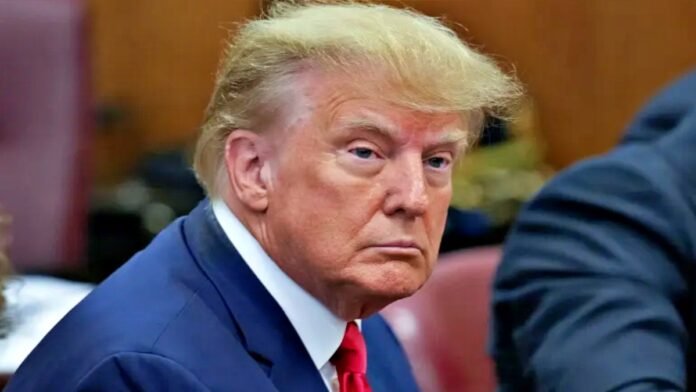
Key Points:
- Security Clearances Revoked: President Donald Trump has rescinded security clearances for over a dozen political opponents, including Joe Biden, Kamala Harris, and Hillary Clinton.
- Targeting Critics: The list includes prominent Democrats, legal adversaries, and even Republican critics like Liz Cheney and Adam Kinzinger.
- Political Retaliation Alleged: Critics view the move as retaliation against those who challenged Trump politically or legally.
Washington D.C.: In a controversial move, President Donald Trump has revoked the security clearances of several high-profile political figures and critics. A late-night memorandum issued on Friday from the White House directed federal agencies to terminate access to classified information for individuals deemed no longer in the “national interest.” The list includes former President Joe Biden, Vice President Kamala Harris, former Secretary of State Hillary Clinton, and other prominent Democrats and legal adversaries.
The revocation extends to classified briefings and secure government facilities. Traditionally, former presidents and senior officials retain security clearances as a courtesy to assist with national security matters when needed. However, Trump’s decision marks a sharp departure from this precedent.
Who Lost Security Clearances?
The memo named several individuals whose clearances were revoked:
- Joe Biden: Former president and Trump’s 2020 election rival.
- Kamala Harris: Biden’s vice president and Trump’s opponent in the 2024 election.
- Hillary Clinton: Former Secretary of State and Trump’s 2016 election rival.
- Antony Blinken: Former Secretary of State under Biden.
- Liz Cheney and Adam Kinzinger: Republican critics who participated in the January 6 investigation against Trump.
- Letitia James and Alvin Bragg: Attorneys who led legal cases against Trump.
- Jake Sullivan: Former National Security Advisor under Biden.
- Other legal figures like Fiona Hill, Norm Eisen, and Mark Zaid were also included.
Trump’s Justification
In the memo, Trump stated that it was no longer in the “national interest” for these individuals to have access to classified information. He directed all executive departments to revoke their clearances immediately. The decision also affects members of Joe Biden’s family, including Hunter Biden.
This move follows Trump’s earlier actions in February when he revoked Biden’s security clearance entirely. Critics argue that this is a tit-for-tat response to Biden’s 2021 decision to deny Trump access to intelligence briefings after labeling him a security risk due to “erratic behavior.”
Critics Call It Retaliation
The revocations have been widely criticized as politically motivated. Many view it as an act of revenge against those who opposed or investigated Trump. For instance:
- Liz Cheney and Adam Kinzinger were vocal critics during the January 6 Capitol riot investigation.
- Letitia James and Alvin Bragg prosecuted Trump in high-profile fraud and hush-money cases.
- Hillary Clinton, Kamala Harris, and Joe Biden have all been electoral rivals of Trump.
Legal experts suggest that while the revocations may be symbolic for some individuals who no longer hold active clearances, they represent a deepening political divide in Washington.
Impact of the Decision
Although many affected individuals no longer require active security clearances due to their current roles outside government, the move has raised concerns about its implications for democratic norms. Traditionally, such revocations are rare and reserved for cases involving national security risks.
Prominent figures like Alexander Vindman (a key impeachment witness) dismissed the action as inconsequential since they no longer rely on active clearances. However, attorneys like Mark Zaid expressed concerns about how this could affect their ability to represent clients in sensitive cases involving federal agencies.
What’s Next?
Trump’s decision reflects his broader strategy of targeting critics and perceived adversaries. While some see this as a symbolic gesture with minimal practical impact, others warn it sets a dangerous precedent for using security clearances as a political weapon. The fallout from this decision is likely to fuel further debates about partisanship and governance in Washington.



















































